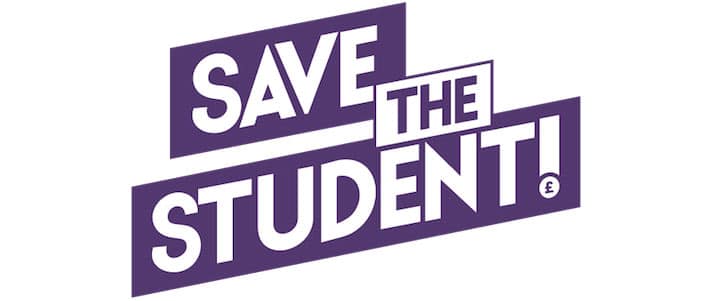How to apply for a graduate scheme
Here's the full lowdown on where to look for graduate schemes, when to apply and how to ace the application process.

Credit: (left) – (left) Africa Studio, (right) hxdbzxy Shutterstock
Thinking about applying for a graduate scheme?
Not only are grad schemes a great way to kick off your career, but salaries tend to be really generous. Better yet, you'll be learning on the job. Being paid to learn is certainly a refreshing change from paying £9,000+ a year to do so.
If you've decided that a graduate scheme would be the right option for you, it's time to start the application process. This guide has everything you need to know.
Applying for graduate schemes
Tips on applying for graduate schemes
Here are a few pointers to help you approach graduate scheme applications.
-
Only apply for grad schemes you actually want to do
This sounds obvious, but applying for graduate schemes en masse is a trap that many fall into. Before you do anything, think about the sort of scheme and company you'd like to work for. There's a graduate scheme out there for pretty much everyone – it's just a case of finding the right one for you.
Employers are not receptive to generic applications. Like all of us, they want to feel special, and that's one of the secrets to getting any job. Your intention should be to show a genuine interest in the company. It'll become clear very quickly to whoever is reading your application whether or not this is the case.
The key to success with graduate schemes is picking out a carefully considered few that really appeal to you, and spending your time getting your application just right.
If you're unsure what the gender pay gap is and how it might affect you, our guide covers everything you need to know. -
Make note of your relevant professional experiences

Credit: ABO PHOTOGRAPHY – Shutterstock
There are a couple of things you can do way before your first application. First of all, have an up-to-date CV. Some recruiters and employers will ask you to fill in their own application form rather than submit a CV, but it's always wise to have one ready.
You might also find that some parts of your CV are highly relevant to certain questions in the application, so you can easily copy, paste, and then edit each point.
If you need a few tips on perfecting your CV, check out our guide to writing the perfect CV. Even if you think yours looks great as it is, there's always room for improvement. Your CV will be used for reference when it comes to answering questions in the next stage, so getting it right is really important.
Next, keep a little notebook or Word document full of your achievements – however big or small. It might seem a bit silly, but it's easy to forget about that great project you worked on during the Christmas holidays, the website you created, or the freelance work you've done online.
These are things that might not fit your CV, but are really handy to refer back to when you're preparing for an interview.
-
Know what to expect from the application process
The recruitment process is likely to involve several stages. The specifics will obviously differ from one employer to the next, but they will more than likely involve some of these:
Stages of the application process
- Submit your initial application (long before the deadline) – This may include a CV and cover letter, plus general questions about your skills and experience. Make sure you tailor your documents and responses for the specific role.
- Complete psychometric testing – This will usually be in the form of Maths and English tests, which you complete online in your own time.
- Have a phone or online interview – This will generally be a one-to-one conversation with a recruiter, typically lasting around half an hour. Have notes at the ready! Find out how to smash standard interviews as well as phone and video interviews.
- Attend a face-to-face interview – You'll usually have to travel to the recruiter's offices and meet with a panel of interviewers. Competency-based and job-specific questions are common at this stage, so read up on how to nail your interview.
- Attend an assessment centre – This stage of the process tends to involve several exercises over a single day, including group discussion, teamwork and leadership activities, a presentation and further interviews. You'll be surrounded by lots of other candidates, but don't let this intimidate you. Graduates currently taking part in the scheme could also be involved in organising the exercises, so this is a great opportunity to ask lots of questions. They'll know first hand what it's like to be on the programme, and may even be able to offer a few tips.
Best places to find graduate schemes
So, where to start with your grad scheme hunt? Here are our recommendations:
-
Right here on Save the Student

Our list of graduate scheme deadlines is a great place to get a good idea of the different companies offering training programs.
It includes links to application pages for additional info, as well as the deadlines for applications so that you don't miss out.
This is the best place to start (although admittedly we might be a bit biased on this one!).
-
Register with a recruitment agency
We'd recommend getting hooked up with a specialist graduate recruiter like the Graduate Recruitment Bureau, particularly if you feel as though you could do with a bit of guidance.
Graduate recruitment companies will throw carefully matched opportunities your way, but they're also available to help you with the whole application process free of charge.
This includes helping you to get your CV up to scratch, fill out application forms and handle interviews and assessments to the best of your ability.
-
Graduate recruitment websites
Beyond agencies like GRB, there are a whole host of websites and companies out there listing the latest graduate career opportunities, including Milkround and Target Jobs.
Remember that graduate recruitment is big business, so you need to be smart on this one. If you're not really selective about what you're looking for, there's a serious risk of data overload including hundreds of 'job alerts' in your inbox each week.
It might be a good idea to set up a new folder in your email inbox to filter graduate opportunities, or even set yourself up an entirely new email address just for job applications so you keep everything separate.
-
Company websites and social media pages

If you've got a particular employer in mind, make sure you're regularly checking their website for any vacancy posts or announcements.
Follow your top picks on LinkedIn and Twitter, like them on Facebook and sign up to any newsletters they might have. This will keep your finger on the pulse in terms of upcoming opportunities, and you'd be surprised by how frequently companies post on social before anywhere else.
-
Industry websites and trade magazines
If you have an idea about the kind of career you want to forge, make sure you check dedicated websites and trade magazines in that sector. The CIPD site might be handy if you're looking at HR jobs, for example.
To get a feel for your industry and what's going on behind the scenes, we'd recommend keeping an eye on the Institute of Student Employers. Those guys are very much in the know when it comes to graduate careers, so you can use this to your advantage.
-
Your university's careers service
There's a good chance that your uni will have dedicated noticeboards or a careers website to advertise graduate schemes.
Most will also have a fully-fledged university careers service, offering free advice and support to students and graduates, so take full advantage of them (because many don't!).
Blindly scouring the internet can sometimes be like looking for a needle in a haystack. If someone's going to make it easier for you, why not grab the opportunity with both hands?
You might find out about businesses that you've never even heard of, or not thought of working for, but that are actually really suited to what you want. Keep your eyes and ears open around campus.
The most important thing when it comes to searching for graduate jobs is to be proactive, but also to have a strategy in place to save you from wasting valuable time. Let's face it, you already have enough on your plate with your studies and potentially a part-time job to juggle too.
When should you start applying for graduate schemes?

Not to state the obvious or anything, but you should be applying between the application open date and the deadline! Missing a deadline is the most easily avoidable hiccup, which is what makes it so infuriatingly annoying when it happens.
Make sure you work out well in advance when employers open the application process, and when they plan to close it. We've got a full list of graduate scheme deadlines.
It's also worth knowing that it's not unheard of for recruiters to close the application window early if they get inundated with responses. For that reason, we strongly recommend playing it safe and getting your application in as soon as possible to avoid disappointment.
As a general rule, the application window for most graduate schemes is open from early October to February. If you've missed the boat, you might want to wait another year or look for a regular graduate job instead. However, some graduate schemes are open to applicants all year round.
Successful applicants will typically start in their new job the following September after graduation.
When will you hear back from employers?
There are hundreds of applicants competing for each place on grad schemes, so it could be several weeks or even months until you find out whether you've progressed to the next stage or not. Unfortunately, this means you'll just need to be patient.
Having said that, don't rest on your laurels! Keep up with your applications to maximise your chances of being placed.
Graduate schemes with big employers will always be extremely competitive. Carefully choosing which ones to apply for, and really making the effort to prepare and personalise your application, is crucial to ensuring you stand out from the crowd.
Remember it's always worth keeping an eye out for opportunities on the graduate job market as well as gunning for a place on training schemes. Good luck!








